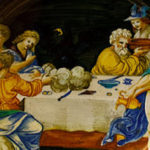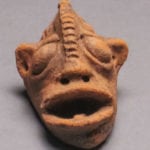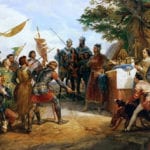 History
History  History
History  Health
Health 10 Everyday Activities That Secretly Alter Consciousness
 History
History Top 10 Historical Disasters Caused by Someone Calling in Sick
 Animals
Animals 10 New Shark Secrets That Recently Dropped
 Movies and TV
Movies and TV 10 Forgotten Realities of Early Live Television Broadcasts
 Technology
Technology 10 Stopgap Technologies That Became Industry Standards
 Weird Stuff
Weird Stuff 10 Wild Facts About Taxidermy That You Probably Didn’t Know
 Travel
Travel 10 Beautiful Travel Destinations (That Will Kill You)
 Miscellaneous
Miscellaneous 10 Modern Marriage Rituals Born from Corporate Branding
 Weird Stuff
Weird Stuff Ten Bizarre Visions of 2026 from Fiction
 History
History 10 “Modern” Problems with Surprising Historical Analogs
 Health
Health 10 Everyday Activities That Secretly Alter Consciousness
 History
History Top 10 Historical Disasters Caused by Someone Calling in Sick
Who's Behind Listverse?

Jamie Frater
Head Editor
Jamie founded Listverse due to an insatiable desire to share fascinating, obscure, and bizarre facts. He has been a guest speaker on numerous national radio and television stations and is a five time published author.
More About Us Animals
Animals 10 New Shark Secrets That Recently Dropped
 Movies and TV
Movies and TV 10 Forgotten Realities of Early Live Television Broadcasts
 Technology
Technology 10 Stopgap Technologies That Became Industry Standards
 Weird Stuff
Weird Stuff 10 Wild Facts About Taxidermy That You Probably Didn’t Know
 Travel
Travel 10 Beautiful Travel Destinations (That Will Kill You)
 Miscellaneous
Miscellaneous 10 Modern Marriage Rituals Born from Corporate Branding
 Weird Stuff
Weird Stuff Ten Bizarre Visions of 2026 from Fiction
10 Awesome Ancient Philosophers History Forgot
Plato, Socrates, and Aristotle get all the press. Sure, they invented entirely new systems of logic, cosmology, government, math, and morality and their ideas still influence the modern world in untold ways. But we’ve heard it before. There are dozens of other interesting ancient thinkers who never get mentioned in Philosophy 101. Here are their stories.
10Diogenes Of Sinope
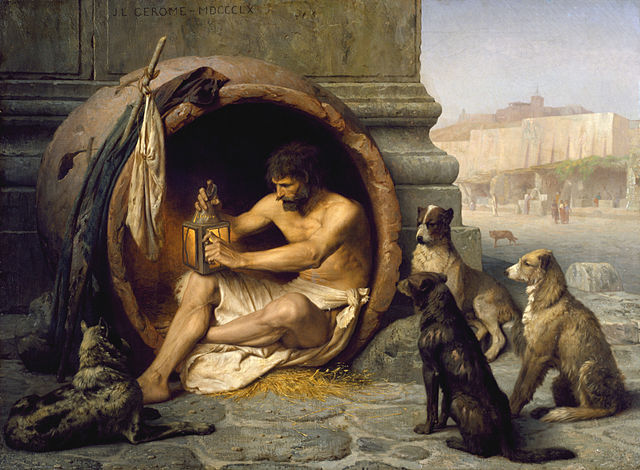
There has probably never been another philosopher quite as unusual as Diogenes, who practically invented performance art with such bizarrely poignant stunts as living in a massive, upturned jar and regularly masturbating in public. The fourth century B.C. was an intellectual golden age in Greece, and Diogenes delighted in mocking his fellow titans of philosophy. Once, he openly critiqued Plato’s definition of humans as “featherless bipeds” by plucking a chicken and displaying it in Plato’s Academy. A disgruntled Plato simply added “without claws” to his definition and later described Diogenes as “a Socrates gone mad.”
Unlike other contemporary philosophers, Diogenes disdained material wealth and only possessed a wooden bowl—which he immediately threw away after witnessing a child drinking with just their hands.
In 338 B.C., Alexander the Great, then the young conqueror of (most of) Greece, visited Corinth. The locals all flocked to meet Alexander—except Diogenes, who stayed in his jar. Intrigued, Alexander decided to pay the philosopher a visit. Upon reaching the jar, Alexander asked Diogenes if there was anything he would like. Diogenes simply replied, “Yes, stand a little out of my sunlight.” This prompted Alexander to proclaim, “If I were not Alexander, I would prefer to be Diogenes.”
9Alexander Of Abonoteichus

Using religion to take financial advantage of gullible people is not a modern invention, although Scientology may have come close to perfecting the business model. Alexander of Abonoteichus beat Jim Jones and Heaven’s Gate by nearly 18 centuries to start a Mediterranean-wide cult based around a hand puppet.
According to Lucian of Samosata, Alexander’s hoax began around A.D. 160 in his hometown of Abonoteichus, a city known for its gullibility. According to Lucian: “Whenever a man but turned up [in Abonoteichus] they were all agog over him on the instant and stared at him as if he were a god from heaven.” This might help explain the success of Alexander’s scheme, which was flimsy at best.
First, Alexander proclaimed himself the prophet of Glycon (the reincarnation of Asclepius, god of medicine) in the form of a snake with a human-like head (and fabulous hair). Glycon’s cult grew rapidly, even though he was a hand-operated linen puppet who “talked” via an unseen accomplice shouting down a hidden pipe.
Next, Alexander began to convince rich locals to pay a fortune to receive an oracular prediction from Glycon. He used the cash to develop an extensive spy network, which “allowed him to provide surprisingly accurate answers.”
Even Roman Emperor Marcus Aurelius asked Glycon to predict the outcome of a military campaign against the Marcomanni. Glycon told the Emperor that a “great victory would be won if two lions were thrown into the Danube.” Marcus Aurelius complied (the lions swam to safety on the opposite bank, where they were clubbed to death by puzzled locals), but the Roman army was still defeated, suffering horrendous casualties. Like the famous Oracle of Delphi, Alexander used Glycon’s vagueness as an excuse—for he had not prophesied who the great victory would be for.
Of course, the gig couldn’t last forever, and Alexander succumbed to gangrene at the age of 70. Glycon’s religion didn’t long outlast its founder, but every aspiring cult leader should study Alexander’s brash falsehoods for inspiration.
8Xenophanes
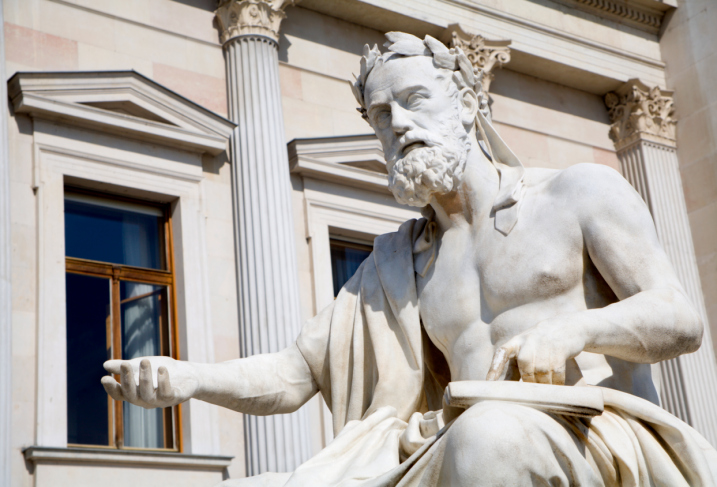
As modern society becomes increasingly secular, critiquing religion takes little courage—but in the sixth century B.C., bashing the gods took guts.
In Ancient Greece, the anthropomorphic gods of Homer’s Iliad ruled the day. But they didn’t impress the philosopher Xenophanes, who spent his whole life ridiculing the very idea of the Olympians. One of his surviving poetic fragments lampoons the idea of gods who look and act like humans:
But if horses or oxen or lions had hands
or could draw with their hands and accomplish such works as men,
horses would draw the figures of the gods as similar to horses,
and the oxen as similar to oxen,
and they would make the bodies
of the sort which each of them had.
Xenophanes was also disgusted by the Olympians’ lack of morals—understandable considering that Zeus impregnates Danae with a golden shower and Tantalus serves his son Pelops for dinner. Such blatant bad behavior went against his conception of God as a singular entity who was above and beyond morality and certainly did not interfere in human gossip like some catty socialite. For this reason, Xenophanes has been called an early proto-monotheistic philosopher and a noteworthy precursor to later attacks on paganism.
7Hegesias Of Cyrene

Conventional pessimists seem downright cheerful compared to the philosopher Hegesias of Cyrene, whose doctrine was so depressing he was nicknamed Peisithanatos, or “Death-Persuader.” Hegesias flat-out denied the existence of happiness: “for the body is infected with much suffering, while the soul shares in the sufferings of the body and is a prey to disturbance, and fortune often disappoints.” Hegesias believed breaking free from such sorrow and pain was the sole goal of life.
The crowning achievement of his gloomy career was an essay titled “Death By Starvation.” According to the noted Roman orator Cicero, the essay spoke so highly of suicide that it caused a noticeable percentage of readers to take their own lives. The essay was so dark that Hegesias was subsequently banned from teaching in Alexandria on the orders of Pharaoh Ptolemy himself.
6Apollonius Of Tyana
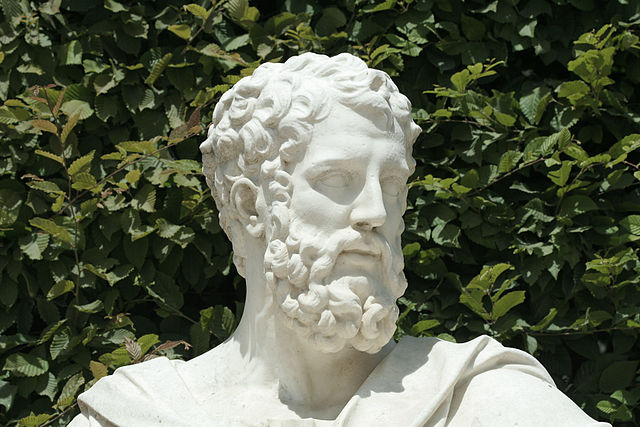
It’s hard to imagine today, but for centuries there was serious doubt over whether Christianity would survive at all. Early Christianity was mocked and reviled by the pagan elite, occasionally persecuted by Rome—and faced some stiff competition from another miracle worker with a supposedly divine nature. Until the second century A.D., Apollonius of Tyana was an enormously popular spiritual figure, prompting historians to label him the “Pagan Christ.” Apollonius’ fame was so great that the Emperor Alexander Severus “revered Apollonius of Tyana, Christ, Abraham, Orpheus, and Alexander the Great in his private shrine.”
Apollonius was born shortly after Jesus and his life was similarly characterized by itinerant preaching, a rejection of worldly riches, and a non-violent ideology. Apollonius also reportedly achieved some surprising miracles. One day he interrupted a speech to exclaim, “Take heart, gentleman, for the tyrant has been slain this day.” This remark made no sense to the audience until weeks later, when news filtered in that the notoriously cruel Roman emperor Domitian had been assassinated at the exact moment of Apollonius’ cryptic remark.
Long after Apollonius’ death around A.D. 100, when he reportedly rose to heaven in another Christ parallel, his cult continued. Around A.D. 300, the Roman philosopher Vopiscus wrote that “[Apollonius was] a sage of the most widespread renown and authority, an ancient philosopher, and a true friend of the gods.” Eventually, Christianity won the Salvation Cup and the hearts of billions—but with a few historical changes, those wristbands could easily have read “WWAoTD.”
5Peregrinus Proteus

Thousands of years before Johnny Rotten, Peregrinus Proteus understood how to work a crowd with a theatricality that makes punk rock look decidedly pedestrian. Proteus began his adult life by possibly murdering his father, then joined a community of early Christians, before becoming an itinerant philosopher. While wandering, Proteus likened himself to Hercules and wore lion’s furs—gathering a devoted following in the process. Yet he might have faded from history if not for his climactic finale.
At the Olympic Games in A.D. 168, Proteus publicly announced that he would throw himself onto a funeral pyre to mark the end of the games. As he said: “What other end had Heracles?”
Lucian of Samosata, who witnessed the whole event, reported that Proteus approached the pyre dressed as Hercules and hurled himself into the flames, shouting: “Gods of my mother, Gods of my father, receive me with favor!” Now that’s a closing ceremony.
4Calanus

When Alexander the Great’s army entered India in 324 B.C., they heard tales of ascetic Hindu holy men, who shunned wealth for a life of meditation. The yogis stubbornly refused to visit Alexander, who instead came to their jungle home, where he was asked to take off his clothes and sit on hot stones. They then began heartlessly mocking the young conqueror. To the most powerful man on Earth they said:
“You [Alexander] are but human like the rest of us, save that you are always busy and up to no good, traveling so many miles from your home, a nuisance to yourself and to others. You will soon be dead, and then you will own just as much of this earth as will suffice to bury you.”
Surprisingly Alexander did not instantly decapitate them, but instead asked the disrespectful yogis to join his retinue. Most refused, but one, known to the Greeks as Calanus, agreed to accompany him. Calanus’s rejection of wealth and power caused a sensation in Greek philosophical circles. The Skeptic and Cynic movements were directly inspired by the Eastern philosophy Calanus disseminated.
Years later, Calanus requested a funeral pyre so he could die immediately and not simply wither away. Before jumping in, Calanus muttered, “Alexander, we shall meet again in Babylon.” Two weeks later, Alexander died unexpectedly in Babylon.
3Chrysippus

Chrysippus was a titan of philosophy in the Ancient Greek world. He practically originated the Stoic movement, which dominated Hellenistic philosophy for almost five centuries. He also invented a new system of logic, revitalized geometric study, and wrote 705 books in 72 years of life (an average of almost 10 per year, assuming he already had a draft finished when he popped out of the womb). He was so famous that Clement of Alexandria, a highly esteemed ancient chronicler, wrote that Chrysippus, not Aristotle, was the finest logician.
But despite all of his achievements, Chrysippus is probably best remembered for his strange death. In fairness, there is a boring, generic version where the philosopher drank a little too much undiluted wine. The other ancient account is unforgettable.
Chrysippus, the story goes, was engrossed in watching a donkey eat some figs when he decided to give the donkey some wine to see if it could still eat figs while inebriated (the inquiring mind of a philosopher at work). The donkey’s ensuing drunken antics caused Chrysippus to die in a fit of laughter, proving that even the highest minds like silly things.
2Philolaus
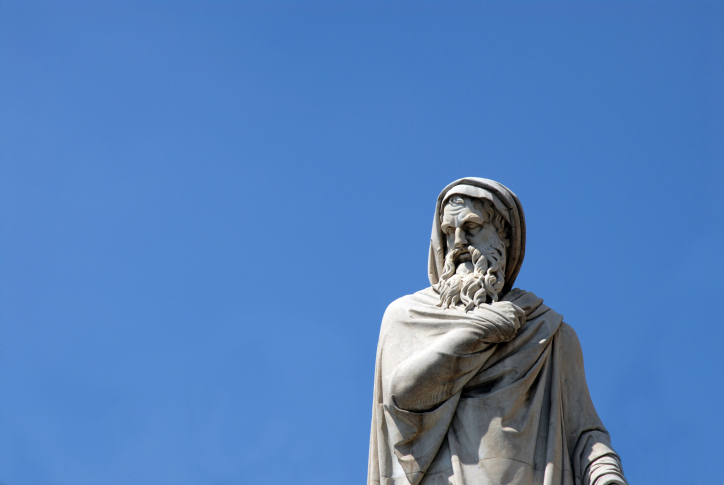
No one will say Philolaus was 100 percent correct, or even 1 percent correct. But humanity rarely succeeds the first time. In the fifth century B.C., Philolaus managed to craft one of the first non-geocentric worldviews. It was unquestionably an important breakthrough—even if it seems utterly ludicrous now.
Philolaus’ cosmology was not centered on the Sun. Instead, he invented a hypothetical object he dubbed the Central Fire. Even the Sun and the Moon orbited the Central Fire, which somehow escaped the naked eye.
Philolaus was also superstitious, and the existence of only nine celestial bodies perturbed him. To reach a perfect 10, he invented the Counter-Earth, an unseen astronomical body that could balance out his universe.
The Counter-Earth is invisible because it orbits on the exact opposite side of the Sun (not the Central Fire, confusingly). Marvel Comics has extensively used the Counter-Earth in many series, keeping Philolaus’ vision alive.
Since Philolaus wanted to be as wrong as possible, he also decided that the Earth circled the Central Fire every single day. But he should still be applauded for his grandiose stab in the dark, which paved the way for less factually challenged heliocentric views.
1Philitas Of Cos

Some people love to read. Other people lose friends by reading Infinite Jest. Philitas of Cos sacrificed his physical health to reading. After Alexander the Great’s death in 323 B.C., the Mediterranean was embroiled in decades of constant warfare. Amid the chaos, Philitas stayed calm and encamped on the tranquil island of Cos so he never had to stop studying. Contemporaries lauded him for his work ethic while simultaneously poking fun at his frail, haggard look—friends wrote that he had to put lead weights in the soles of his shoes to avoid being blown away.
Philitas didn’t have time for food or sustenance. His prime objective was solving the famous Liar Paradox. This popular ancient paradox is still universally known today: If a person says “I am lying,” is their statement true or false?
The question caused Philitas endless anxiety. He studied for months on end trying to wrangle a solution. He became so consumed in his work that he died after ignoring the basic necessities of life. Modern scholars translate his epitaph as such:
Philetas of Cos am I,
‘Twas the Liar who made me die,
And the bad nights caused thereby.
Now you have a legitimate reason to take a study break.
I’m a 24-year-old comedian with seven worthless college degrees! Follow me @filthyson for funny business. I know all the capitals of the world. That’s useful right?
